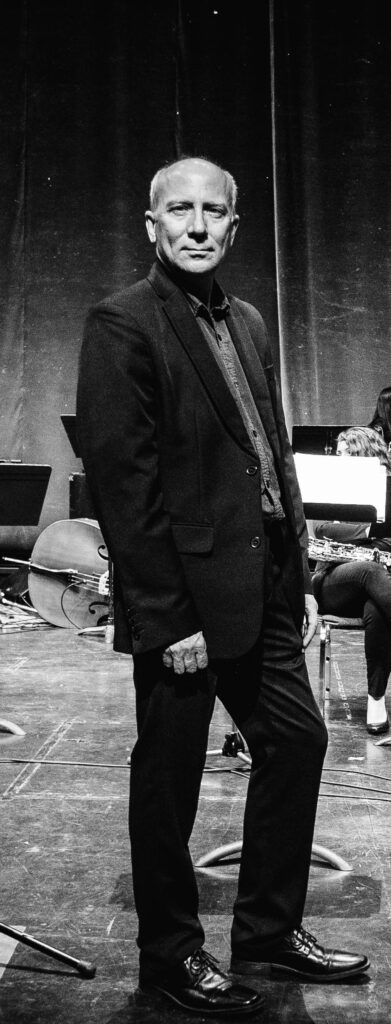“It’s meant to be a user’s guide”: part two of our conversation with Gwynne Dyer on his latest book, Intervention Earth
April 2024
Would something like the possible re-election of Donald Trump as President of the United States be keeping you awake at night?
The re-election of Donald Trump would be a bad thing from multiple points-of-view. Even leaving aside what he does to Americans, in terms of the rest of the world I think he would be a wholly negative phenomenon. Is he a big enough phenomena to derail what was otherwise going to go on down the track? I don’t know. He was very scatty the first time. A lot of words, not much action, really. He seems both less coherent and more determined now. A second term might be worse than the first, but frankly, if we were going to brutally honest about it, American emissions are not the problem. They’re a very big problem in the fact that they’re huge, but they’re not as big as China’s anymore, and they’re not growing. They haven’t been growing for a long time. You couldn’t use more energy than the American use. Trump can’t really intervene with that much, he can’t cause American emissions to go so big that they would make a dent in the total emissions in the world.
But in the sense of making international agreements on climate issues much more difficult, because without the Americans there’s not a balance, the keystone is missing, that’s a problem [he could cause]. Because we may have to be making some very large decisions fairly soon; we’re in a weird period right now where evidence is accumulating that there’s a very substantial escalation going on in the warming. How rapidly are we talking about here? And the answer is the climate scientists I am talking to say we’ll know by September. Literally. Whether what seems to be happening is really happening, in which case we have about half the time we thought we had. And maybe it will turn out not to be that but it’s looking like all the calculations and predictions they’ve made will have to be remade and the deadlines are a lot closer before you cross various tipping points.
I know most of the climate scientists – I shouldn’t say most, I should say out of the hundred best-known I know 75% of them, there’s only maybe 1,000 all off, it’s not what you call a huge community – and one of the problems with them, they do tend to live in their own silos. If you’re doing the Arctic you are not paying attention to the Amazon. So there’s not a great deal of integration. This is a weird thing to say but I probably know more than the average climate scientist about the state of play because I speak to all of them. And to me it feels quite scary and it’s getting quite scary to others as well. We’re not going to turn this around by all one day deciding to vote against fossil fuels and fossil fuels will go away. We will get out of fossil fuels at the best as quickly as we can put in other sources of energy, because we’re not going to starve ourselves of energy, realistically. How fast can this stuff be rolled out? And the answer is: there’s speed limit.

We haven’t done that badly. In the sense that 35 years ago nobody knew that there was a problem. Literally. First pubic news that we’ve got a problem here, that will be global in scope and possibly existential in the long run, was in [June] 1988 when [NASA scientist] James Hansen went and talked to the joint houses of Congress about the problem. And [former British Prime Minister] Margaret Thatcher here in England went to the Royal Society and made her famous speech [on September 27, 1988]. And then you got a whole lot of movement on the diplomatic level and a treaty by 1994 and it looked like we were getting some results. And then the fossil fuel industry woke up to what was happening and the counter-propaganda began. And the diversionary tactics. To have an active lobby trying to make sure you don’t acquire those capabilities is not a great idea. There’s some passionate opposition, even to ban research, which would be catastrophic. The oil industry is not your only enemy.
It began to dawn upon us ten, fifteen years later at the best. Most people even now think in terms of a gradual intensification of the problem. They’re not aware of the parallel possibility that there could be a sudden intensification of the problem. The science says so. You look at previous warming episodes like out of the last Ice Age, you had steady warming but you also had sudden surges, where the temperature would go a couple of degrees in a year, with catastrophic results. I don’t see any reason to be sure that that wouldn’t happen again. If it does you may be subject to sudden surges in temperature, and if you have no way to turn the thermostat back down you’re on the high road to hell.
Switching to your twice-weekly column, you’re not slowing down.
I still write it, it’s fifty years this year. In a way it’s a habit, I would be at a loss for what to do. But newspapers are dying. All the alternatives in terms of getting paid for your opinions are frankly unpromising. Putting out analysis and commentary as an independent [voice], you don’t reach the same kind of audience on Substack or something, you’re preaching to the converted. I stick on with the column for that reason.
Is there anything I haven’t ask you about Intervention Earth that you would like to touch on?
Well, first of all, buy it (laughs). Or steal it, I don’t mind. For my money it is the state of play right now. I don’t see anything on the market like it.* It is an attempt to figure out how all the things we might be doing or have started to do will move and will it be enough and if it isn’t enough in terms of cutting emissions fast then we have to think about geo-engineering: here are the options and the considerations and the drawbacks. It’s meant to be a user’s guide, rather than a polemic. I promise nobody gets told to pull their socks up and get in with it. The message, if there is such a thing, is you’re not going to get through this on good wishes and hope. You’re going to have to do the hard work. And the hard work is not abstention, simplifying your life – it’s very concrete, get out of this technology, get into that technology, here’s what it will cost in money, in sacrifices, in time. Your deadline is a moving target but it’s moving faster than before. That’s enough for one book.
NQ spoke by phone with Dyer, from his home in London, UK. The interview has been lightly edited for clarity.
*After the interview concluded we recommended Holly Hogan’s Message in a Bottle.
(Image: world-flags-globe, Eugenio Hansen, Wikimedia commons)



